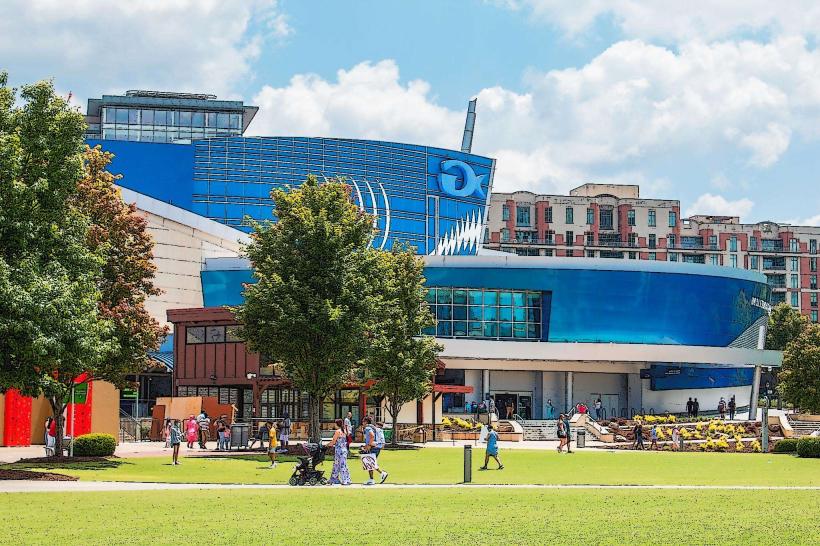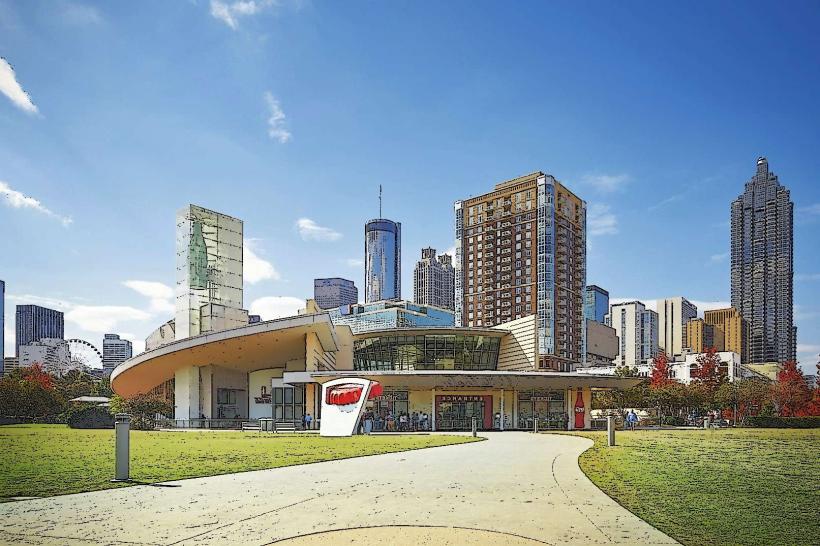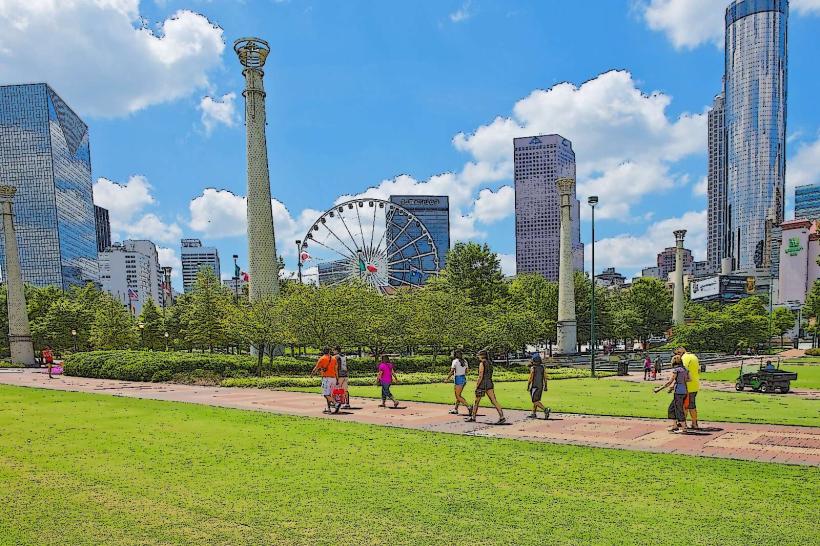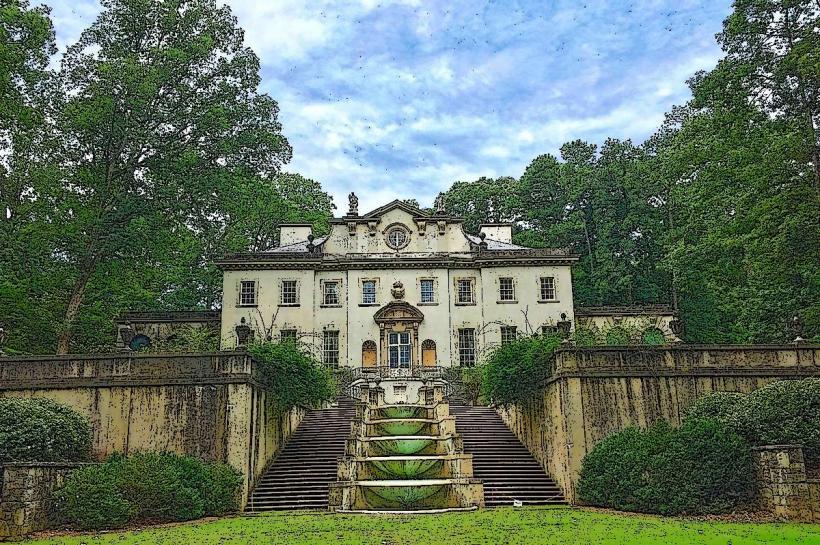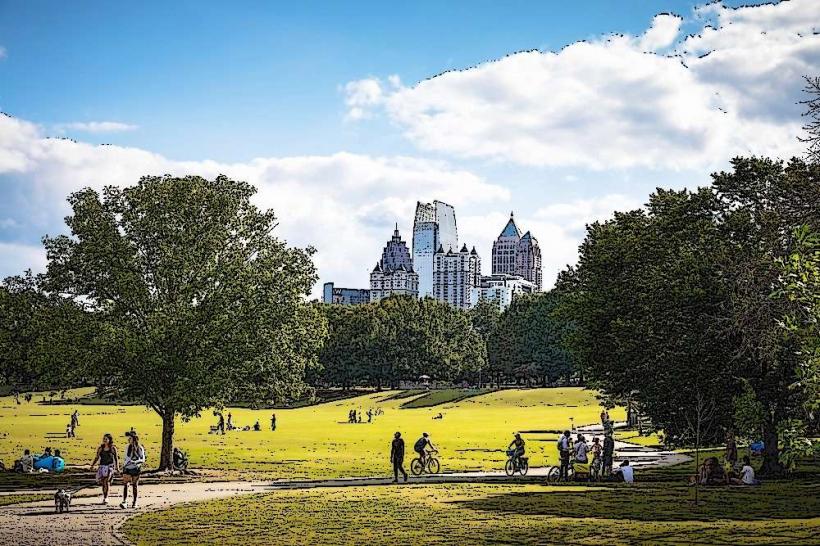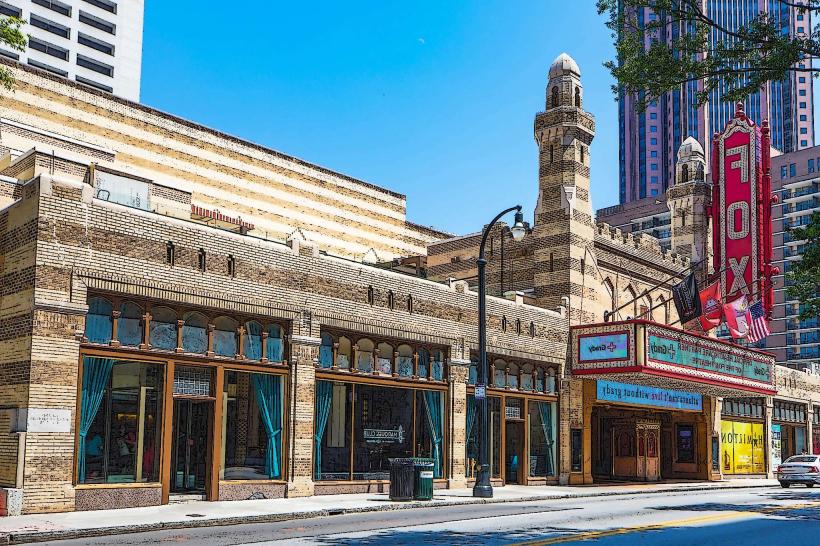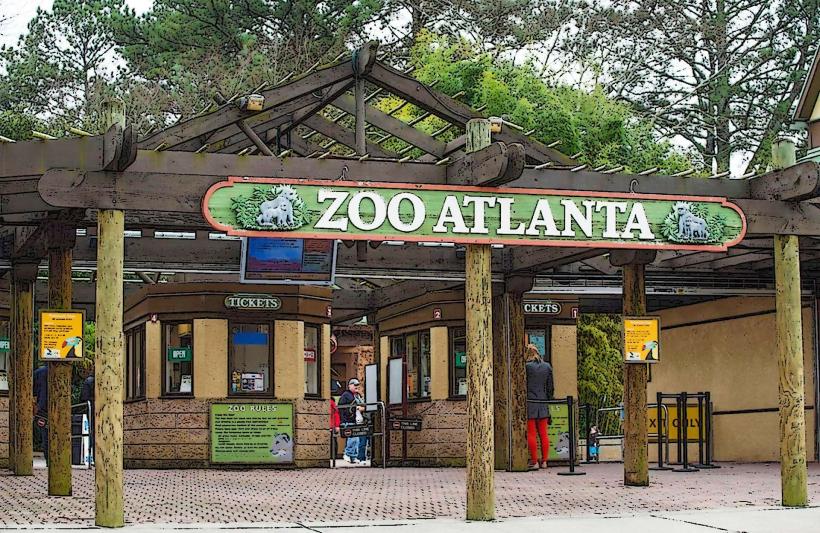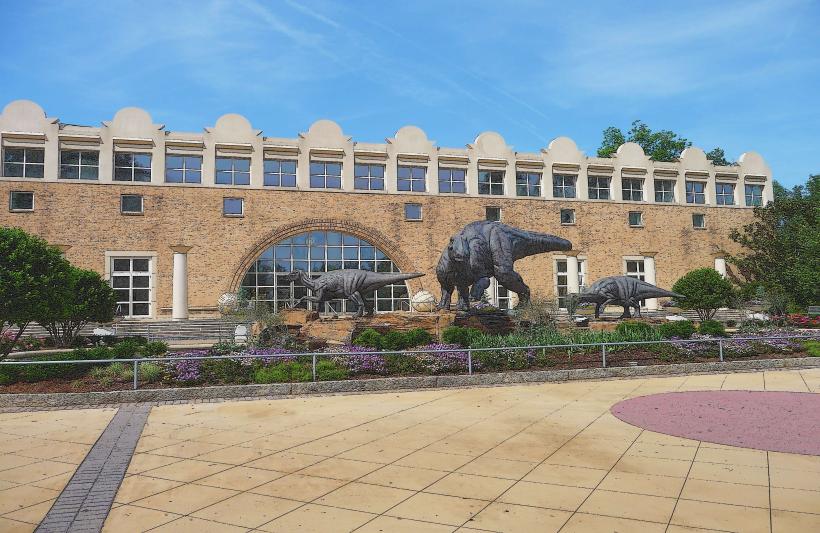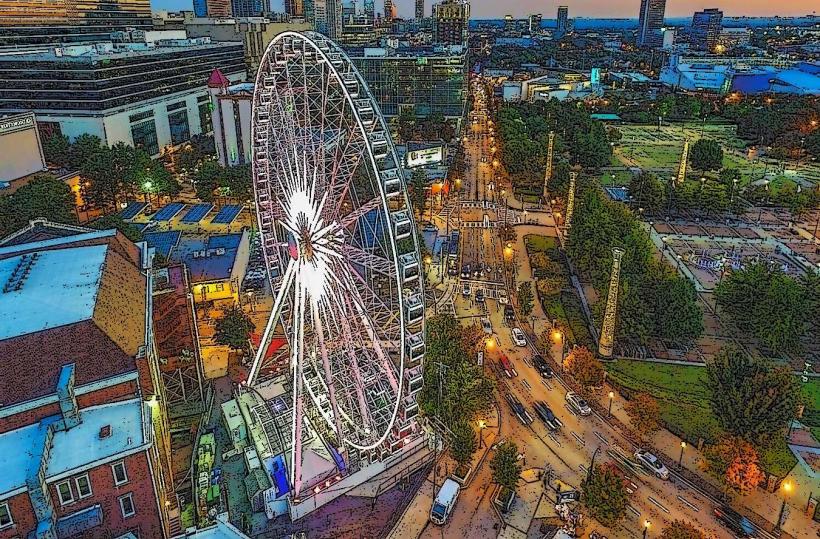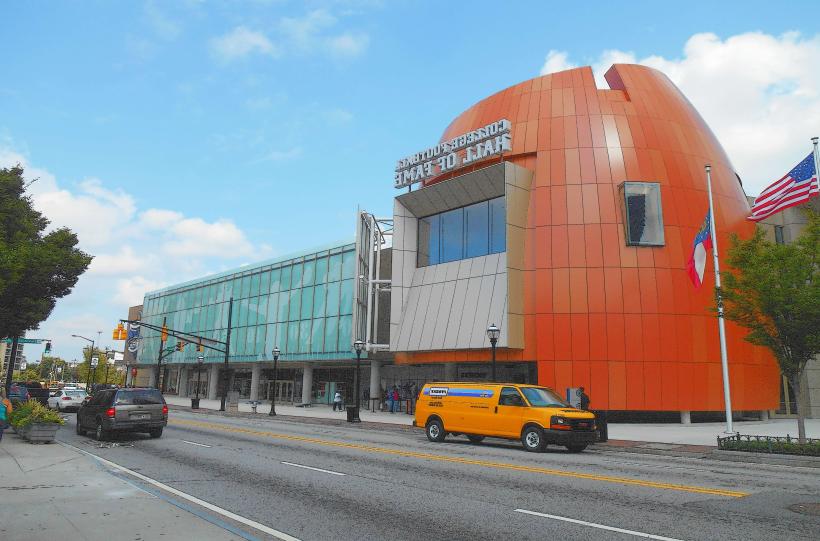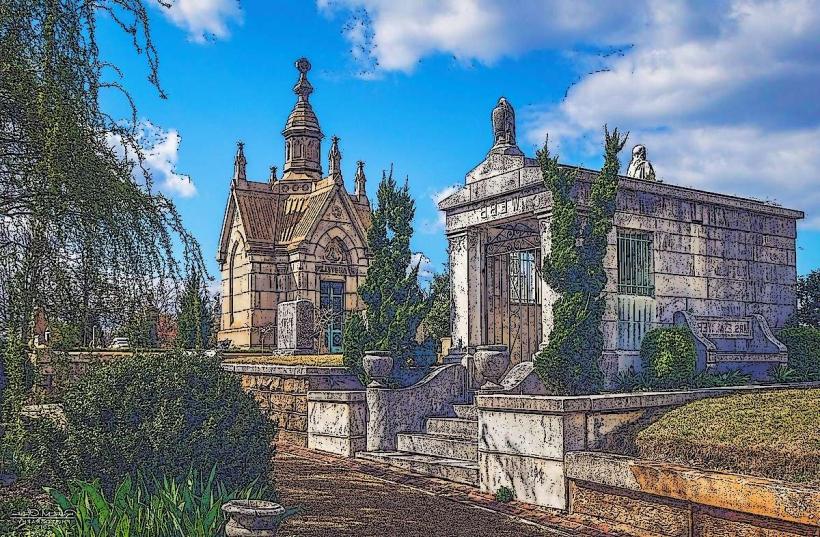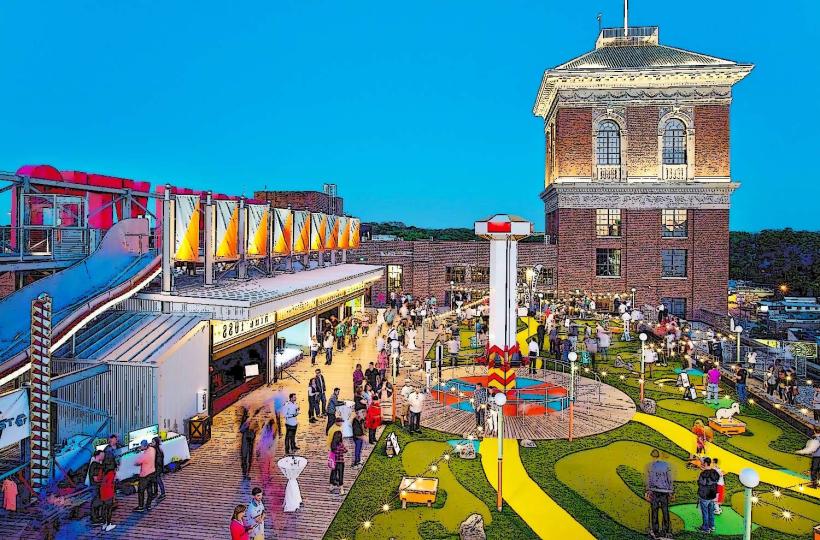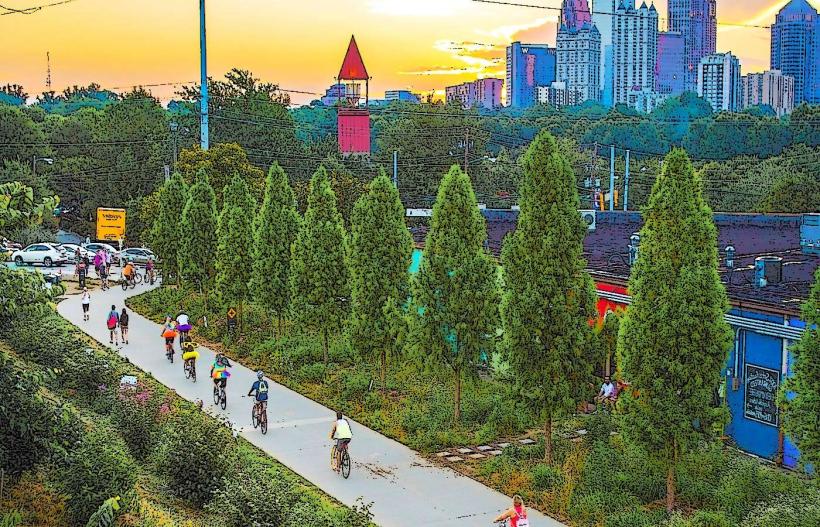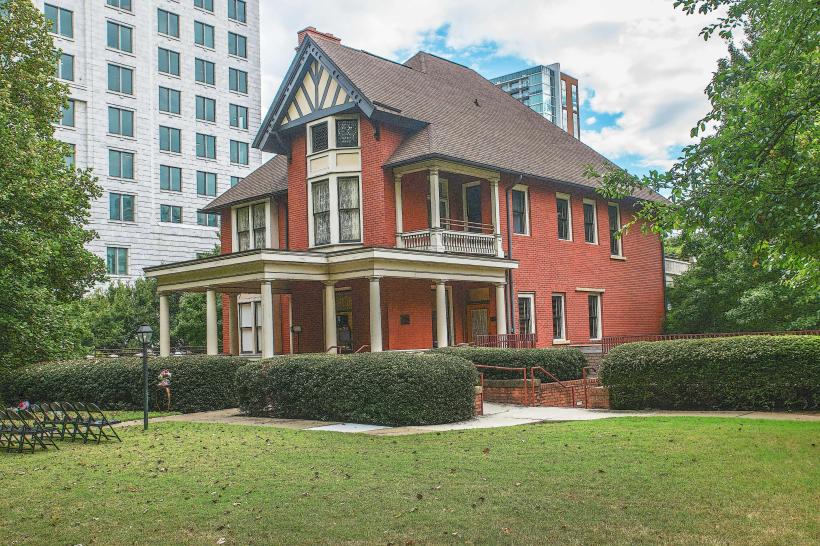Information
Landmark: Atlanta Botanical GardenCity: Atlanta
Country: USA Georgia
Continent: North America
Atlanta Botanical Garden, Atlanta, USA Georgia, North America
The Atlanta Botanical Garden is a 30-acre botanical garden located in Atlanta, Georgia, USA.
It is situated adjacent to Piedmont Park in the Midtown neighborhood.
Visual Characteristics
The garden features diverse themed areas including a tropical rainforest conservatory, a desert house, and a Japanese garden. The Fuqua Orchid Center houses a collection of over 4,500 orchids. The Canopy Walk, a 600-foot-long elevated walkway, provides views of the forest floor and canopy from 40 feet above ground. The Storza Woods section showcases native Georgia flora.
Location & Access Logistics
The garden is located at 1345 Piedmont Drive NE, Atlanta, GA 30309. It is approximately 3 miles northeast of downtown Atlanta. Parking is available in the Atlanta Botanical Garden parking garage, accessible from Piedmont Drive. Public transport options include MARTA bus lines 12, 27, and 816, which stop near the garden entrance. The nearest MARTA train station is Midtown, approximately 1 mile away.
Historical & Ecological Origin
Established in 1976, the Atlanta Botanical Garden was founded as a non-profit organization dedicated to the conservation and display of plants. The site was formerly part of Piedmont Park. The Storza Woods area is a remnant of the original forest that once covered the region.
Key Highlights & Activities
Visitors can explore the various themed gardens, including the Edible Garden, the Rose Garden, and the Herb Garden. The Children's Garden offers interactive exhibits. The Fuqua Orchid Center is a primary attraction. Seasonal exhibits, such as the Garden Lights, Holiday Nights, are also featured. Photography is permitted.
Infrastructure & Amenities
Restrooms are available throughout the garden. Shaded areas are provided by trees and structures in various sections. Cell phone signal (4G/5G) is generally available. Food and beverages are sold at the Garden Cafe and the Highlander Cafe. A gift shop is also on-site.
Best Time to Visit
For optimal lighting for photography, early morning or late afternoon is recommended. The months of April through October generally offer the most favorable weather for outdoor exploration. Specific bloom times vary by plant species; the orchid collection is typically at its peak in late winter and spring. The Canopy Walk is accessible year-round.
Facts & Legends
The Atlanta Botanical Garden is home to a collection of carnivorous plants, including Venus flytraps and pitcher plants, which are a unique ecological adaptation. The Storza Woods section contains mature trees that predate the garden's establishment.
Nearby Landmarks
- Piedmont Park - 0.1km West
- High Museum of Art - 1.2km Southwest
- Fox Theatre - 1.8km Southwest
- Centennial Olympic Park - 3.5km Southwest
- Georgia Aquarium - 3.8km Southwest

